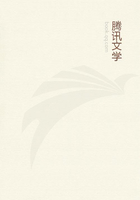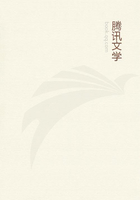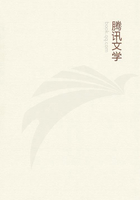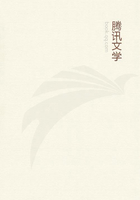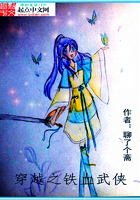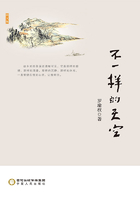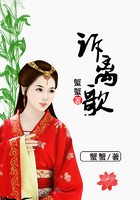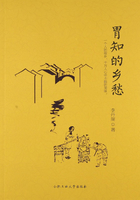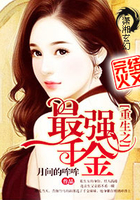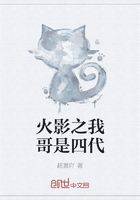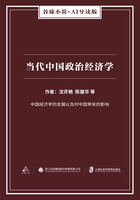To-night the annual custom of driving the evil spirit, Abonsam, out of the town has taken place. As soon as the eight o'clock gun fired in the fort the people began firing muskets in their houses, turning all their furniture out of doors, beating about in every corner of the rooms with sticks, etc., and screaming as loudly as possible, in order to frighten the devil. Being driven out of the houses, as they imagine, they sallied forth into the streets, throwing lighted torches about, shouting, screaming, beating sticks together, rattling old pans, making the most horrid noise, in order to drive him out of the town into the sea. The custom is preceded by four weeks' dead silence; no gun is allowed to be fired, no drum to be beaten, no palaver to be made between man and man. If, during these weeks, two natives should disagree and make a noise in the town, they are immediately taken before the king and fined heavily. If a dog or pig, sheep or goat be found at large in the street, it may be killed, or taken by anyone, the former owner not being allowed to demand any compensation. This silence is designed to deceive Abonsam, that, being off his guard, he may be taken by surprise, and frightened out of the place. If anyone die during the silence, his relatives are not allowed to weep until the four weeks have been completed.
Sometimes the date of the annual expulsion of devils is fixed with reference to the agricultural seasons. Thus among the Hos of Togoland, in West Africa, the expulsion is performed annually before the people partake of the new yams. The chiefs summon the priests and magicians and tell them that the people are now to eat the new yams and be merry, therefore they must cleanse the town and remove the evils. Accordingly the evil spirits, witches, and all the ills that infest the people are conjured into bundles of leaves and creepers, fastened to poles, which are carried away and set up in the earth on various roads outside the town. During the following night no fire may be lit and no food eaten. Next morning the women sweep out their hearths and houses, and deposit the sweepings on broken wooden plates. Then the people pray, saying, All ye sicknesses that are in our body and plague us, we are come to-day to throw you out. Thereupon they run as fast as they can in the direction of Mount Adaklu, smiting their mouths and screaming, Out to-day!
Out to-day! That which kills anybody, out to-day! Ye evil spirits, out to-day! and all that causes our heads to ache, out to-day! Anlo and Adaklu are the places whither all ill shall betake itself! When they have come to a certain tree on Mount Adaklu, they throw everything away and return home.
At Kiriwina, in South-Eastern New Guinea, when the new yams had been harvested, the people feasted and danced for many days, and a great deal of property, such as armlets, native money, and so forth, was displayed conspicuously on a platform erected for the purpose. When the festivities were over, all the people gathered together and expelled the spirits from the village by shouting, beating the posts of the houses, and overturning everything under which a wily spirit might be supposed to lurk. The explanation which the people gave to a missionary was that they had entertained and feasted the spirits and provided them with riches, and it was now time for them to take their departure. Had they not seen the dances, and heard the songs, and gorged themselves on the souls of the yams, and appropriated the souls of the money and all the other fine things set out on the platform? What more could the spirits want? So out they must go.
Among the Hos of North-Eastern India the great festival of the year is the harvest home, held in January, when the granaries are full of grain, and the people, to use their own expression, are full of devilry. They have a strange notion that at this period, men and women are so overcharged with vicious propensities, that it is absolutely necessary for the safety of the person to let off steam by allowing for a time full vent to the passions. The ceremonies open with a sacrifice to the village god of three fowls, a cock and two hens, one of which must be black. Along with them are offered flowers of the palas tree (Butea frondosa), bread made from rice-flour, and sesamum seeds. These offerings are presented by the village priest, who prays that during the year about to begin they and their children may be preserved from all misfortune and sickness, and that they may have seasonable rain and good crops. Prayer is also made in some places for the souls of the dead. At this time an evil spirit is supposed to infest the place, and to get rid of it men, women, and children go in procession round and through every part of the village with sticks in their hands, as if beating for game, singing a wild chant, and shouting vociferously, till they feel assured that the evil spirit must have fled. Then they give themselves up to feasting and drinking rice-beer, till they are in a fit state for the wild debauch which follows.
The festival now becomes a saturnale, during which servants forget their duty to their masters, children their reverence for parents, men their respect for women, and women all notions of modesty, delicacy, and gentleness; they become raging bacchantes. Usually the Hos are quiet and reserved in manner, decorous and gentle to women. But during this festival their natures appear to undergo a temporary change. Sons and daughters revile their parents in gross language, and parents their children; men and women become almost like animals in the indulgence of their amorous propensities. The Mundaris, kinsmen and neighbours of the Hos, keep the festival in much the same manner. The resemblance to a Saturnale is very complete, as at this festival the farm labourers are feasted by their masters, and allowed the utmost freedom of speech in addressing them. It is the festival of the harvest home; the termination of one year's toil, and a slight respite from it before they commence again.

